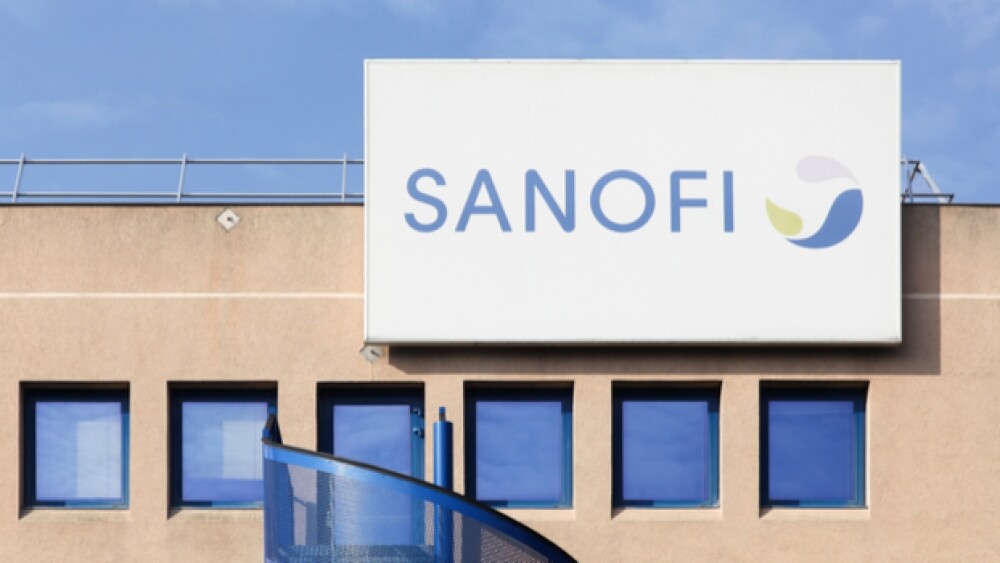Paris-based Sanofi settled corruption charges with the U.S. Securities and Exchange Commission (SEC) for more than $25 million. Sanofi is far from the first pharma company to be accused of bribery.
ricochet64 / Shutterstock.com
Paris-based Sanofi settled corruption charges with the U.S. Securities and Exchange Commission (SEC) for more than $25 million.
The charges were that Sanofi subsidiaries in Kazakhstan and the Middle East made corrupt payments in order to win business. Sanofi did not admit or deny the findings, but agree to pay $17.5 million in disgorgement, $2.7 million in prejudgment interest and a civil penalty of $5 million.
The charges were violations of the U.S. Foreign Corrupt Practices Act. Sanofi stated, “The settlement relates to an investigation by the SEC and U.S. Department of Justice (DOJ) of certain local activities outside the United States and France, namely, in Kazakhstan, Jordan, Lebanon, Bahrain, Kuwait, Qatar, Yemen, Oman, the United Arab Emirates and the Palestinian territory during the period 2006 to 2015. As part of the settlement, the company neither admits nor denies it engaged in any wrongdoing.”
It will pay $25,206,145 in total and also agreed to a two-year self-reporting period on the effectiveness of its enhanced internal controls and anti-bribery and corruption compliance program.
The SEC states, “The schemes spanned multiple countries and involved bribe payments to government procurement officials and healthcare providers in order to be awarded tenders and to increase prescriptions of its products. In Kazakhstan, distributors were used as part of a kickback scheme to generate funds from which bribes were paid to officials to ensure that Sanofi was awarded tenders at public institutions. The kickbacks were tracked in internal spreadsheets where they were coded as ‘marzipans.’ In the Middle East, various pay-to-prescribe schemes were used to induce healthcare providers to increase their prescriptions of Sanofi products.”
Charles Cain, FCPA Unit Chief, SEC Enforcement Division, stated, “Bribery in connection with pharmaceutical sales remains as a significant problem despite numerous prior enforcement actions involving the industry and life sciences more generally. While bribery risk can impact any industry, this matter illustrates that more work needs to be done to address the particular risks posed in the pharmaceutical industry.”
The most notorious case of a biopharma bribery scandal was GlaxoSmithKline in China. In September 2014, a southern China court fined GSK almost $500 million on charges of bribery. The Changsha Intermediate People’s Court also sentenced Mark Reilly, formerly GSK’s China general manager, and four other company managers, to prison terms.
It was one of the more sensational corruption stories involving biopharma. Early on, a sex tape of Reilly and his girlfriend was sent to the company. Reilly hired a private investigator, Peter Humphrey, to determine who planted the camera in his apartment. Humphrey, who is British, and his wife, Yu Yingzeng, an American, were also sentenced to prison in August 2014 for illegally acquiring private records of Chinese citizens and selling the information to GSK and other clients. Reilly confessed to the crimes on Chinese TV, although there were rumors and allegations that both Reilly and Humphrey might have been set up by rogue officers in China’s law enforcement and security programs.
Reilly was deported. In June 2015, Humphrey was released early from prison for health problems related to cancer. Yu Yingzeng was released shortly afterward. Both were deported. Humphrey cannot return for 10 years. It is unlikely Yingzeng will ever be able to return. The two operated ChinaWhys since 2003, a consultancy to investigate fraud and due diligence for international companies.
Humphrey and his wife have subsequently sued GSK for allegedly misleading them on what they were originally hired for in 2013 by the company prior to being hired by Reilly, and for exposing them to legal risks in China. GSK hired Humphrey’s firm to investigate a whistleblower in China. A U.S. judge dismissed the lawsuit, not because it lacked merit, but because of U.S. Supreme Court ruling barring lawsuits filed under the federal Racketeer Influenced and Corrupt Organizations Act (RICO) over injuries that occur entirely outside the U.S.
In September 2016, GSK paid $20 million to the SEC over claims it bribed Chinese officials to boost sales.
Regarding the news of Sanofi settlement, Sanofi’s chief executive officer, Olivier Brandicourt, stated, “Sanofi requires all our employees to act with integrity and to follow the highest standards of conduct. We have worked diligently to strengthen our compliance program worldwide and we are pleased the DOJ and SEC recognized these efforts and our close cooperation. We will continue to strengthen internal controls, anti-bribery and corruption compliance programs, and our oversight and training of teams worldwide. Conducting our activities in an ethical way is something that our company takes very seriously.”





